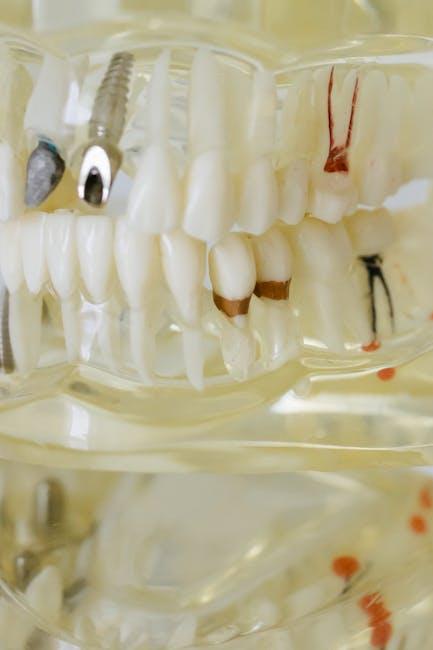
The Impact of Age on Dental Implants: A Guide for Older Adults – London Daily News
As we age, maintaining oral health becomes increasingly important, especially when it comes to restorative options like dental implants. For older adults in London and beyond, understanding how age affects dental implant success is essential to making informed decisions. This comprehensive guide covers everything you need to know—from the impact of age on implant surgery and healing to benefits, risks, and practical tips specially tailored for seniors.
Understanding Dental Implants
Dental implants are titanium posts surgically placed into the jawbone to act as artificial tooth roots. They support crowns, bridges, or dentures, offering a permanent solution for tooth loss. Implants have become a popular choice for their natural look, durability, and improved oral function.
How Does Age Affect Dental Implant Success?
Age itself is not a contraindication for dental implants. However, certain age-related factors can influence candidacy, healing, and long-term success:
- Bone Density and Quality: Bone density typically declines with age, which may affect implant stability. Adequate jawbone is vital for implant anchorage.
- Healing Capacity: Older adults often experience slower tissue regeneration and healing due to decreased blood flow and cell activity.
- General Health Conditions: Chronic diseases like diabetes, osteoporosis, and cardiovascular issues—more common with aging—can impact implant integration and success.
- Medication Use: Some medications (e.g., bisphosphonates, blood thinners) interfere with bone healing or increase surgical risk.
- Oral Hygiene Practices: Consistent care remains critical at any age, and maintaining excellent oral hygiene supports implant longevity.
Age and Bone Quality: What Seniors Need to Know
As the jawbone ages, it may become less dense, leading to challenges in implant placement. However, modern techniques such as bone grafting and sinus lifts can effectively prepare sites for implants, even when initial bone volume is low.
| Age Factor | Potential Impact on Implants | Possible Solution |
|---|---|---|
| Decreased Jawbone Density | Reduced implant stability and osseointegration | Bone grafting or use of zygomatic implants |
| Slower Healing | Longer recovery time | Enhanced post-op care and monitoring |
| Medication Interference | Possible delayed bone healing | Pre-surgical consultation with physician |
Benefits of Dental Implants for Older Adults
Despite challenges, dental implants offer numerous advantages that significantly improve quality of life for seniors:
- Improved Function: Easier chewing and speaking compared to dentures.
- Bone Preservation: Stimulates jawbone health, preventing shrinkage and facial sagging.
- Enhanced Comfort: Permanent and stable solution without the slipping concerns of traditional dentures.
- Boosted Confidence: Restores a natural smile, enhancing self-esteem and social interaction.
- Longevity: With proper care, implants can last decades, making them a cost-effective long-term solution.
Practical Tips for Older Adults Considering Dental Implants
For seniors exploring dental implants in London, following these practical steps can improve outcomes and experience:
- Comprehensive Health Evaluation: Schedule medical and dental assessments; disclose all medications and health conditions.
- Choose Experienced Professionals: Engage dentists or oral surgeons with expertise in senior implant care.
- Maintain Rigorous Oral Hygiene: Clean implants and surrounding gums thoroughly to prevent infections.
- Follow Post-Operative Instructions: Adhere strictly to recovery guidelines provided by your clinician.
- Attend Regular Check-Ups: Early detection of any complications is key for implant longevity.
- Healthy Lifestyle Choices: Quit smoking and maintain balanced nutrition to support healing.
Case Study: Successful Implant Placement in a 72-Year-Old Patient
Mrs. J, a 72-year-old London resident, lost several teeth due to gum disease. Concerned about dentures’ discomfort, she opted for dental implants. After initial bone grafting to compensate for age-related bone loss, her implant surgery was completed successfully. With dedication to oral hygiene and regular follow-ups, Mrs. J experienced restored chewing ability and improved confidence within six months.
Common Myths About Age and Dental Implants
There are misconceptions that can deter older adults from considering implants. Debunk these myths to make informed choices:
- Myth: “I am too old for implants.”
Fact: Age alone is not a barrier—many seniors undergo successful implant procedures. - Myth: “Healing is impossible at an older age.”
Fact: Healing may be slower, but with proper care, recovery is achievable. - Myth: “Implants are not worth the cost in later years.”
Fact: Implants improve quality of life and last longer than other alternatives, providing excellent value.
Frequently Asked Questions (FAQs)
| Question | Answer |
|---|---|
| Is there an age limit for dental implants? | No strict age limit exists; suitability depends on overall health and jawbone condition. |
| How long do implants last in older adults? | With proper care, implants can last 20+ years regardless of age. |
| Are implants safe for seniors with diabetes? | Yes, but blood sugar control is crucial to reduce healing complications. |
| Can bone loss be reversed before implant placement? | Bone grafting and regenerative procedures can restore bone volume effectively. |
Conclusion
Age should never be a barrier to reclaiming your smile and oral health with dental implants. While it is true that older adults may face unique challenges such as reduced bone density or slower healing, advances in dental technology and personalized care plans make implants an accessible and rewarding option for many seniors in London. Consultation with knowledgeable dental professionals can provide tailored treatment strategies that maximize implant success and enhance your quality of life.
Whether you’re considering implants to replace one tooth or a full arch, this guide serves to empower older adults with the knowledge to make confident and informed decisions about their dental care. Embrace the opportunity to restore your smile, functionality, and confidence at any age!


